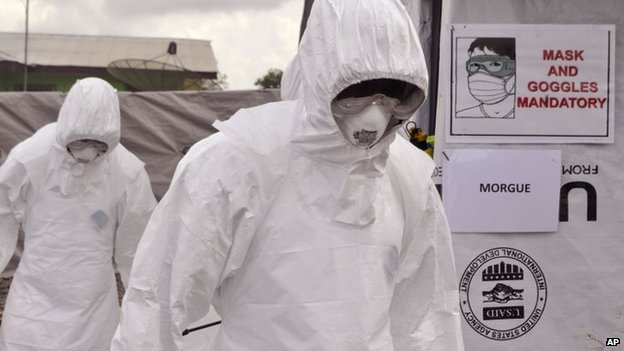29 Nov 2014 - BBC
 The number of people killed by the Ebola outbreak in West Africa has risen to 6,928, the World Health Organisation (WHO) says.
The number of people killed by the Ebola outbreak in West Africa has risen to 6,928, the World Health Organisation (WHO) says.
The toll has increased by over 1,000 since the WHO's last report on Wednesday, but it includes unreported deaths from earlier in the outbreak.
Experts say the infection rate is more significant that the death toll, as it reflects how the virus is spreading. Infection rates are decreasing in Liberia, but are high in Sierra Leone.
There have been over 16,000 reported cases in Guinea, Sierra and Liberia.
Latest Ebola death tolls
Liberia: 7,244 cases, 4,181 deaths
Sierra Leone: 6,802 cases, 1,463 deaths
Guinea: 2,123 cases, 1,284 deaths
http://www.bbc.com/news/health-30260532
Recent Comments